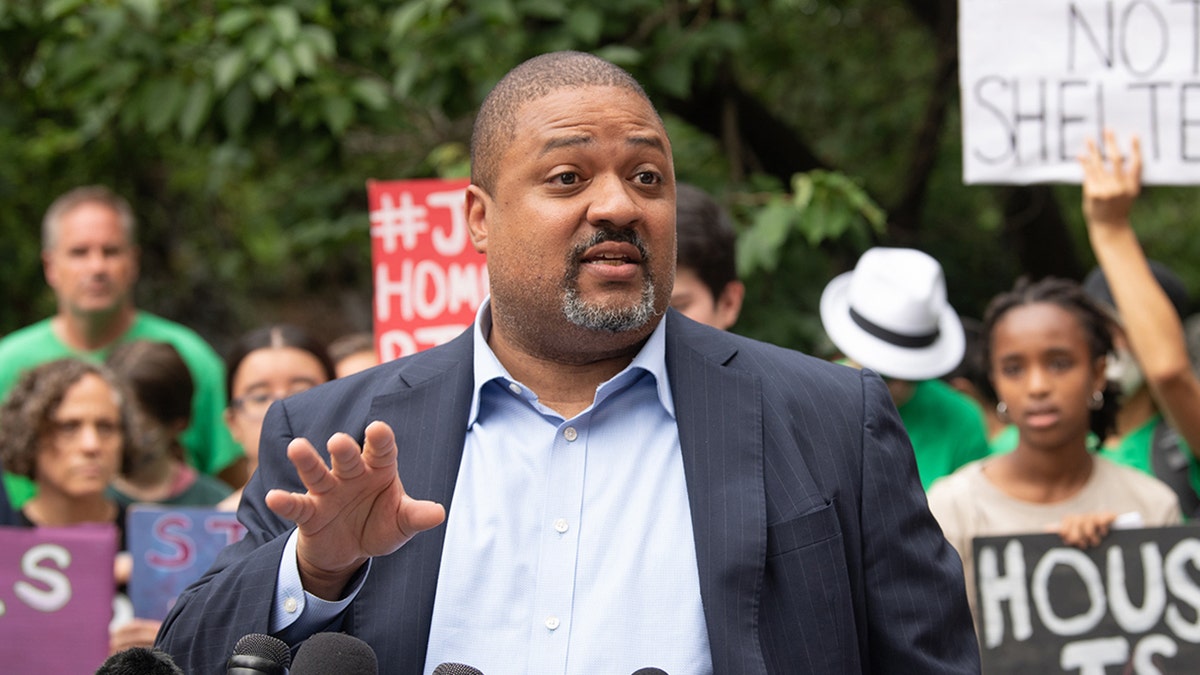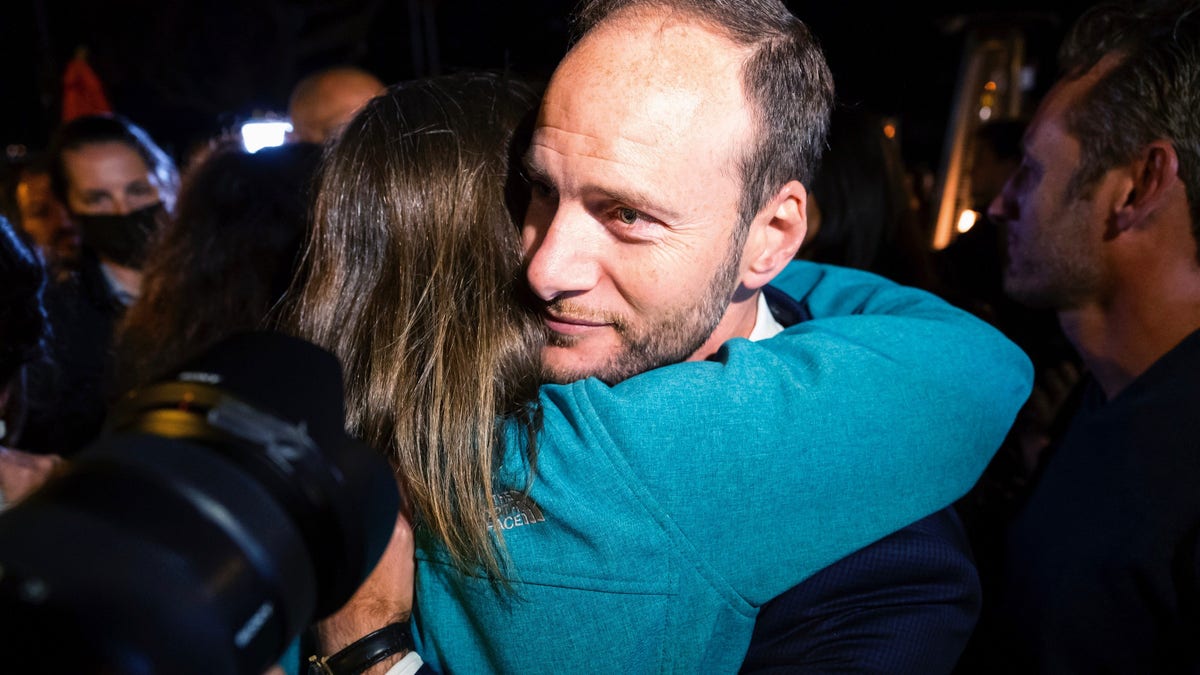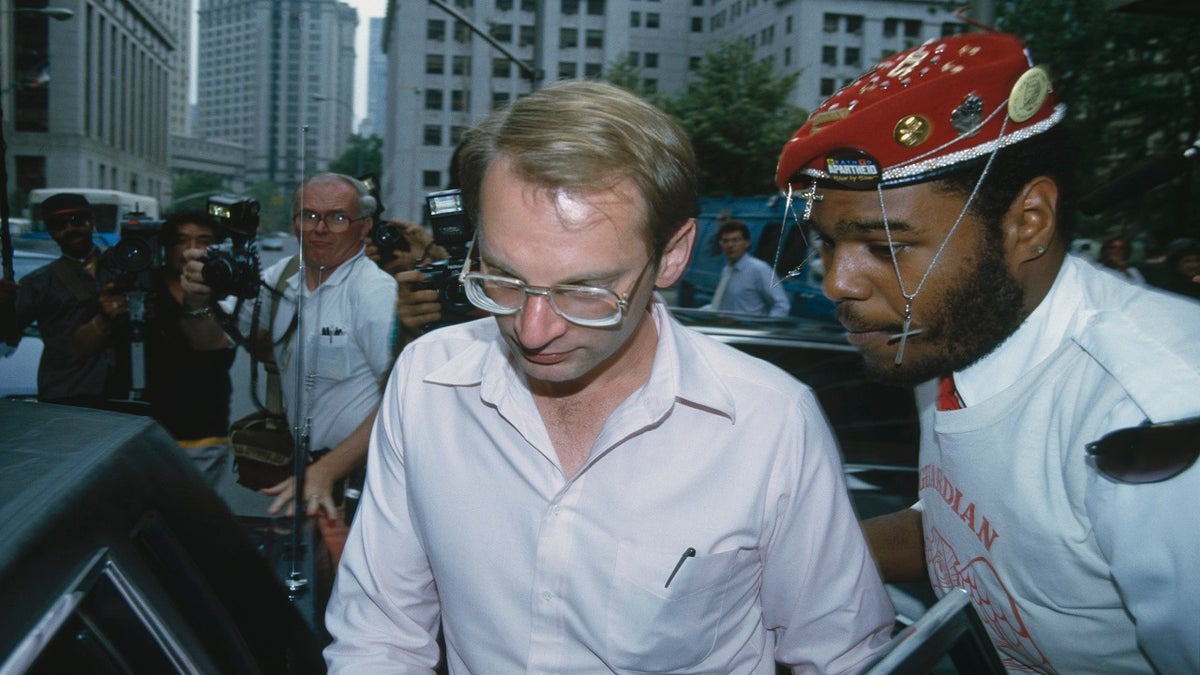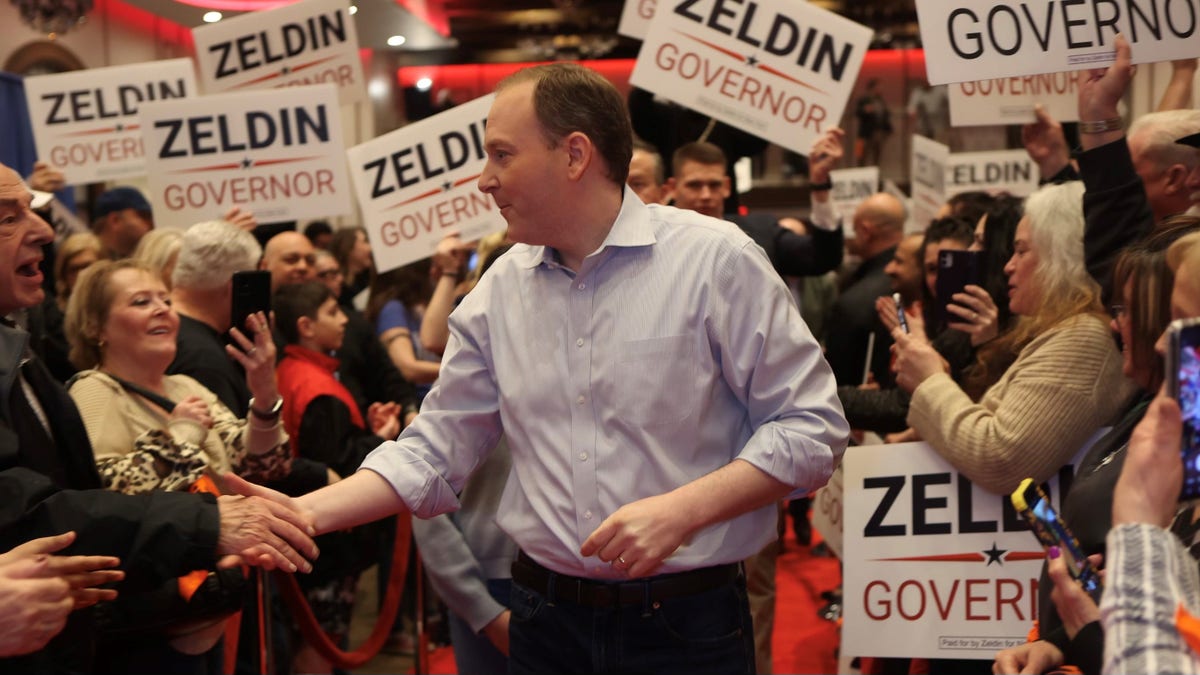DA charges NYC bodega worker with murder in self-defense case
Fox News' David Lee Miller reports live from Manhattan on a bodega worker who stabbed an assailant five times in self-defense and was charged with murder.
Has America had enough of violent career criminals and the district attorneys who protect them? Growing public outrage over New York City’s "bodega case" may mean a tipping point over the lenient treatment of criminals and failure to protect the public is coming – or is already here.
The facts of that case as they’ve been reported: After an argument between 61-year-old bodega worker Jose Alba and a woman customer, the woman’s boyfriend, Austin Simon, entered the bodega and attacked Alba behind the counter. During the struggle, Alba grabbed a knife and stabbed Simon. At some point Simon’s girlfriend also joined the fight, stabbing Alba several times in the arm. Simon died of his wounds. Alba was arrested by police and charged with intentional murder by the Manhattan District Attorney’s Office.
That the incident, and Alba’s apparent efforts at self-defense, were caught on video fueled instantaneous outrage over the arrest – which only grew as new facts emerged.
For one, Alba is by all accounts a longtime pillar of his community, a mild-mannered Dominican immigrant with no criminal record who works long hours. Simon, a 35-year-old violent career criminal with numerous felony arrests, was out on parole for assaulting a police officer.
Then there is Manhattan DA Alvin Bragg’s treatment of Alba. Charged with second-degree murder, the highest murder count available (first-degree murder is reserved for rare cases like killing a cop or a witness), Alba was sent to New York’s notorious Rikers Island jail after the DA requested $500,000 bail (which the judge knocked down to $250,000). Meanwhile, Simon’s girlfriend, who told Alba, "I’m gonna bring my n----- down here and he gonna f--- you up," faces no charges, and Alba’s untreated stab wounds became infected at Rikers.

Manhattan District Attorney Alvin Bragg (Barry Williams/New York Daily News/Tribune News Service via Getty Images)
Under New York law, Alba was entitled to employ deadly force if he believed he was confronted by the same. He was threatened by Simon’s girlfriend and then attacked by Simon, who appeared to reach threateningly for his pocket at points. Alba, who told Simon, "Papa, I don’t want a problem, papa," clearly had no means to retreat as the assault began. So a viable and more prudent option for Bragg would have been to defer prosecution while gathering facts for submission to the grand jury. Instead, Bragg’s office charged intentional murder and requested high bail, for an accused with no criminal record and significant community ties.
If the district attorney has other facts to counter what looks like a strong justification defense for Alba – which is always possible – those facts had better be game-changers.

District Attorney Chesa Boudin hugs a supporter, June 7, 2022, the day San Franciscans voted to recall the DA. (AP Photo/Noah Berger)
All this comes as fears grow that crime in major American cities is simply out of control, and residents have had enough. In San Francisco, DA Chesa Boudin was just recalled by referendum in that heavily Democratic city. In Los Angeles, over 700,000 signatures were just submitted for a referendum to recall DA George Gascon (567,000 are needed to trigger it). In Philadelphia, an effort to impeach DA Larry Krasner is underway.
In Manhattan, Bragg entered office this year by issuing a notorious "reform" memo that instructed prosecutors to avoid jail time for all but the most serious crimes – all while crime was significantly up in New York over the prior year in nearly every major category (index crimes are up another 38% so far this year).
What all these prosecutors share is a view of their mission as less law enforcement and more sociological tinkering, and all had their election campaigns funded by George Soros (Bragg’s to the tune of a reported $1 million).

Bernhard Goetz shot four men on a crowded subway train on Dec. 22, 1984, as they allegedly tried to rob him. (Rick Maiman/Sygma via Getty Images)
This New York case could be the final national tipping point on the issue of criminal justice – as has happened before. While the groundswell of support for Alba echoes the 1984 Bernhard Goetz "vigilante" shooting of four subway muggers, the last true "tipping point" case was in 1990. Brian Watkins, a Utah tourist, was killed while trying to protect his mother during a subway mugging. The city had had enough. The headlines blared, and the ensuing outrage led to the era of Mayor Giuliani and broken windows policing – measures that inspired a New York renaissance and became a model for policing internationally.
CLICK HERE TO GET THE OPINION NEWSLETTER
Like the Watkins killing, the Alba case could also have wide effects. In New York State, only the governor can fire a DA – there is no recall provision. As a result, the issue has become central to this year’s governor’s race. Our current governor, Kathy Hochul (who backed into the spot after Andrew Cuomo’s resignation), has blatantly avoided the topic. She’s also shown her hand by accepting the endorsement of the far-left Working Families Party – whose endorsement almost certainly came with a pledge not to touch the "criminal justice reforms" that are fueling crime spikes. Meanwhile, her Republican challenger, Lee Zeldin, chose as his running mate an NYPD deputy inspector. Zeldin vows to fire Bragg on day one.

Republican Rep. Lee Zeldin campaigns for the GOP gubernatorial nomination in Nassau County, New York, on Feb. 27, 2022. (Lee Zeldin campaign)
There is a newly emerging dynamic in all this. It is no secret that American Hispanics are shifting rightward, away from a left that seems indifferent to the values many hold. It is a simple fact that the bodega case plays into that narrative, and that it will not go unnoticed. Proof? United Bodegas of America President Radhames Rodriguez has vowed to defend Alba and other bodega owners by reaching out to – are you ready? – the NRA. And so, suddenly, a new voting bloc is born – bodega owners for the Second Amendment. A bloc that will by definition be heavily Hispanic and reside firmly on the right.
So what's next? The Alba case has captured wide attention beyond New York, and Bragg is clearly feeling the heat – his office just agreed to reduce Alba’s bail to $50,000, allowing for Alba's release. Will Alba give interviews, as Bernard Goetz did, becoming a symbol of "fighting back"? Could a trial lead to a groundswell that causes a political sea change, like the Watkins’ case? Could the desire to "throw the bums out," especially among some Hispanics, lead to a Gov. Zeldin and an unemployed Alvin Bragg?
CLICK HERE TO GET THE FOX NEWS APP
And could we see the effects nationwide, during this year’s midterms?
The signs are there. Which means that we may someday refer to "pre-Alba" and "post-Alba" New York – or even, "post-Alba America." Making this a case worth watching.











































